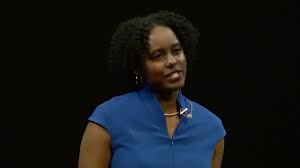In his enlightening TEDx talk, Nathaniel Rouse discusses the critical need for Diversity, Equity, and Inclusion (DEI) work in educational institutions and local communities. He emphasizes that DEI is not merely a buzzword but a fundamental component for creating environments where everyone feels valued, heard, and able to contribute.
Understanding DEI: More Than a Buzzword
Rouse begins by clarifying what DEI truly represents. He argues that these principles are essential for transforming schools and communities into inclusive spaces where diversity is celebrated rather than merely tolerated. This foundational understanding sets the stage for the discussion on the importance of DEI initiatives.
Key Takeaways from the Talk
Fundamental Changes:
- DEI initiatives are essential for transforming schools and communities into inclusive spaces.
Empowerment Through Education:
- Education plays a pivotal role in empowering marginalized voices and providing students with the tools to advocate for themselves and others.
Building Relationships:
- Rouse emphasizes that DEI work is rooted in relationship-building, fostering strong, trusting connections among students, educators, and community members.
Addressing Systemic Inequities:
- It is vital to recognize and address systemic inequities within educational frameworks and communities, challenging norms that perpetuate discrimination and bias.
Long-Term Commitment:
- A continuous commitment to DEI work is essential for meaningful change, highlighting that it is an ongoing journey rather than a one-time initiative.
The Need for Fundamental Change
Rouse’s assertion that DEI initiatives are essential for creating inclusive spaces calls for a paradigm shift in how schools operate. Instead of treating DEI as an add-on or compliance measure, he encourages educators to embed these principles into the fabric of their institutions. This shift can lead to a more profound understanding and appreciation of diverse perspectives.
Empowering Marginalized Voices
By focusing on empowerment through education, Rouse highlights a critical aspect of DEI work: the need to uplift marginalized voices. Educators have a responsibility to create environments where students from all backgrounds feel safe to express themselves. This empowerment can lead to increased engagement and a sense of belonging among students.
Building Trust Through Relationships
The emphasis on relationship-building underscores the importance of community in DEI efforts. Strong relationships can serve as the foundation for trust and collaboration, enabling educators and community members to work together effectively. When people feel connected, they are more likely to participate in DEI initiatives and advocate for positive change.
Addressing Systemic Inequities
Rouse’s focus on addressing systemic inequities is a call to action for educators to critically examine their practices and policies. Acknowledging and dismantling discriminatory systems is crucial for fostering an environment of equity. This analysis encourages schools to be proactive in creating equitable opportunities for all students.
Commitment to Continuous Growth
Finally, Rouse’s call for long-term commitment reflects the reality that DEI work requires persistence and dedication. It’s essential for educators and community leaders to continuously educate themselves, seek feedback, and adapt their approaches. This commitment can lead to sustained change and a culture that values diversity and inclusion.
Conclusion: A Collective Responsibility
Nathaniel Rouse’s TEDx talk serves as a vital reminder that DEI work is not the sole responsibility of a few but a collective effort that requires active participation from everyone involved. By fostering an inclusive environment in schools and communities, we can create spaces where all individuals feel valued and empowered to thrive.





























